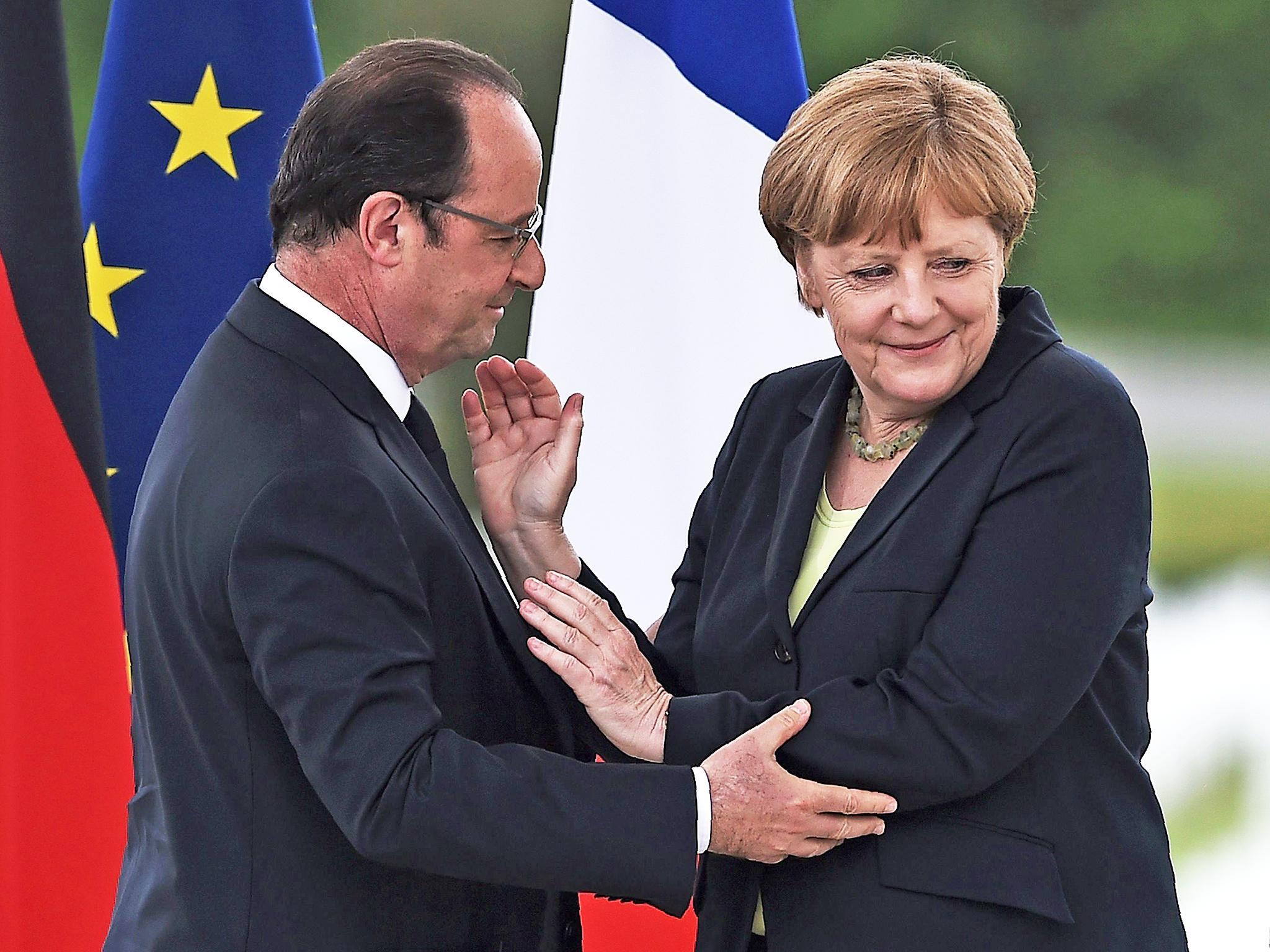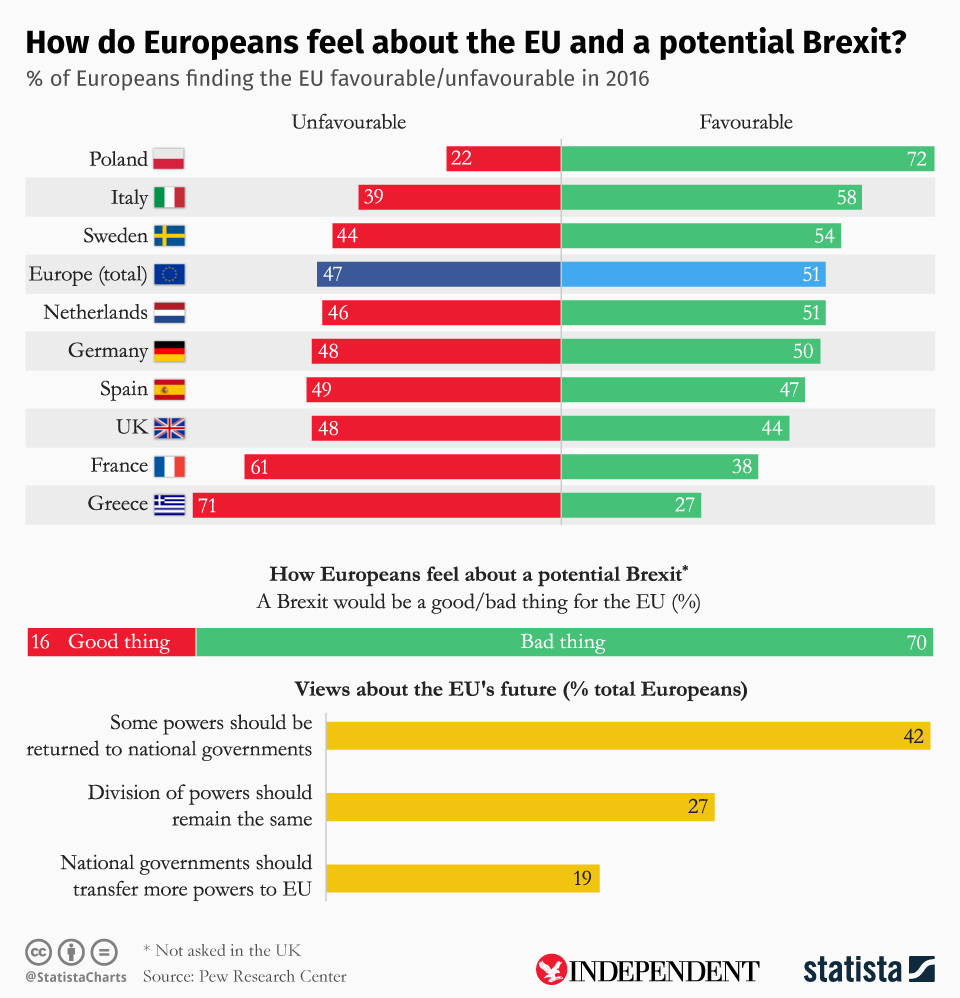Euroscepticism on the rise across Europe as analysis finds increasing opposition to the EU in France, Germany and Spain
However, study reveals the vast majority of voters in most other European countries - with the exception of France - do not want Britain to vote for Brexit

More than 60 per cent of French voters now have an unfavourable view of the European Union while almost half the electorate in Germany, Spain and the Netherlands have also become Eurosceptic, new research reveals.
An analysis by the respected American think-tank the Pew Research Centre found a marked drop in support for the EU across seven major European countries.
Opposition to the EU now runs at 60 per cent in France, 71 per cent in Greece, both higher than the 48 per cent opposition in the UK.

The study highlights the huge task faced by Brussels in restoring confidence in the organisation after the financial crisis and its handling of the influx of refugees from Syria and North Africa.
In 2004, 69 per cent of French voters and 58 per cent of German voters backed the EU – while not a single country reported a net negative rating.
The research also reveals that not a single European country wants more powers to be handed to the EU while a growing number of voters want powers repatriated.
Roughly two-thirds of Greeks (68 per cent) and British (65 per cent) want some EU power returned to Athens and London. Pluralities in Sweden (47 per cent), the Netherlands (44 per cent), Germany (43 per cent) and Italy (39 per cent) also want to curtail EU power.
But interestingly, as shown in the chart below - created for The Independent by statistics agency Statista - the vast majority of voters in most other European countries, with the exception of France, do not want Britain to vote for Brexit. However 32 per cent of French voters believe Britain departure would be a good thing for the EU.
The report authors said their research showed the British were not the only ones with doubts about the European Union.

“The EU’s image and stature have been on a roller coaster ride in recent years throughout Europe,” they wrote.
“The EU is again experiencing a sharp dip in public support in a number of its largest member states.
“There is little enthusiasm for transferring more power to Brussels. As the British head to the polls, just 6 per cent of the public in the UK wants such an outcome. And only 8 per cent of Greeks favour more power for the EU.
“In most countries a quarter or more of the public prefers to keep the current division of power.”

The EU referendum debate has so far been characterised by bias, distortion and exaggeration. So until 23 June we we’re running a series of question and answer features that explain the most important issues in a detailed, dispassionate way to help inform your decision.
What is Brexit and why are we having an EU referendum?
Will we gain or lose rights by leaving the European Union?
What will happen to immigration if there's Brexit?
Will Brexit make the UK more or less safe?
Will the UK benefit from being released from EU laws?
Will leaving the EU save taxpayers money and mean more money for the NHS?
What will Brexit do to UK trade?
How Brexit will affect British tourism
What will Brexit mean for British tourists booking holidays in the EU?
Will Brexit help or damage the environment?
Join our commenting forum
Join thought-provoking conversations, follow other Independent readers and see their replies
Comments
Bookmark popover
Removed from bookmarks